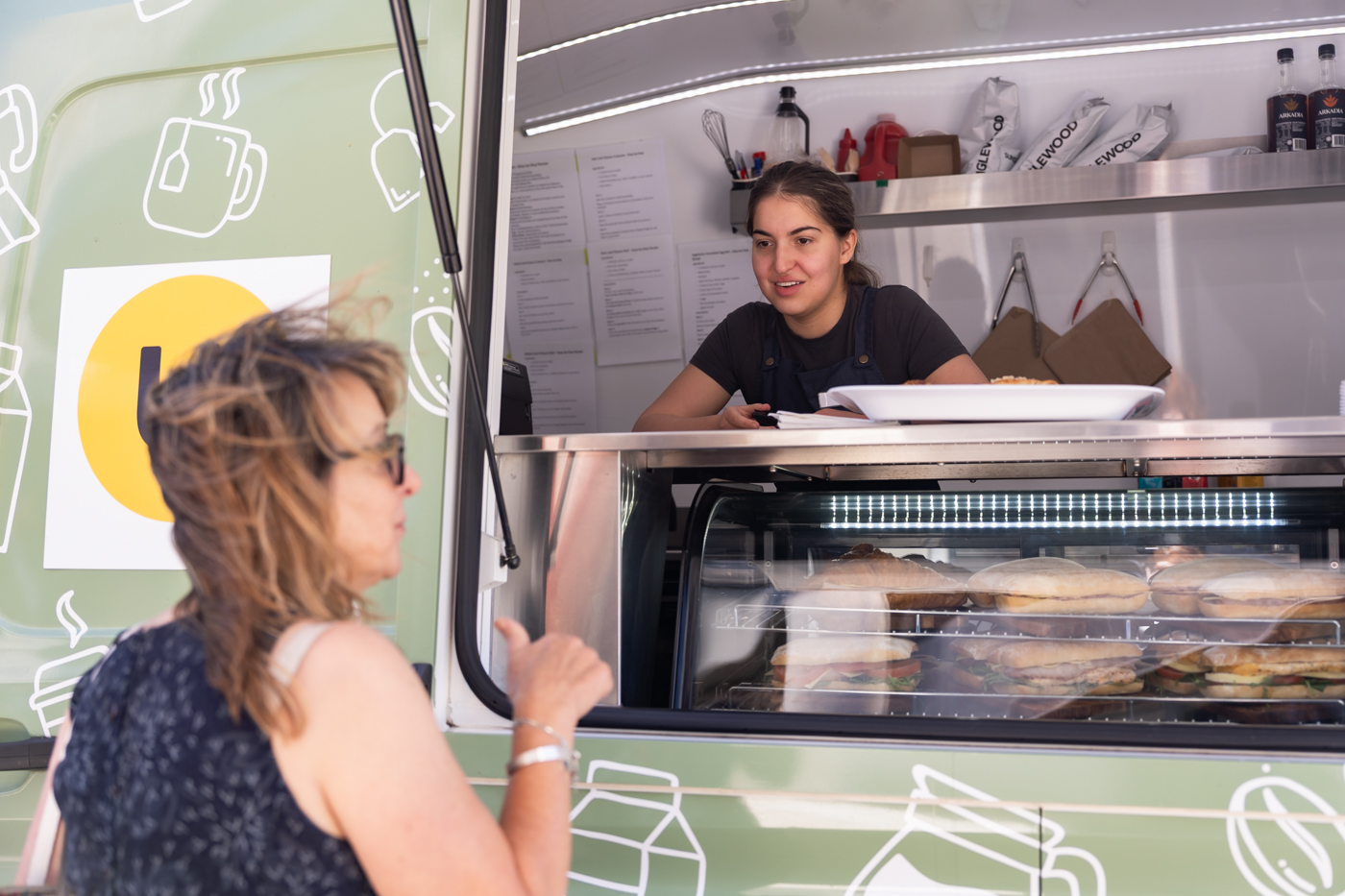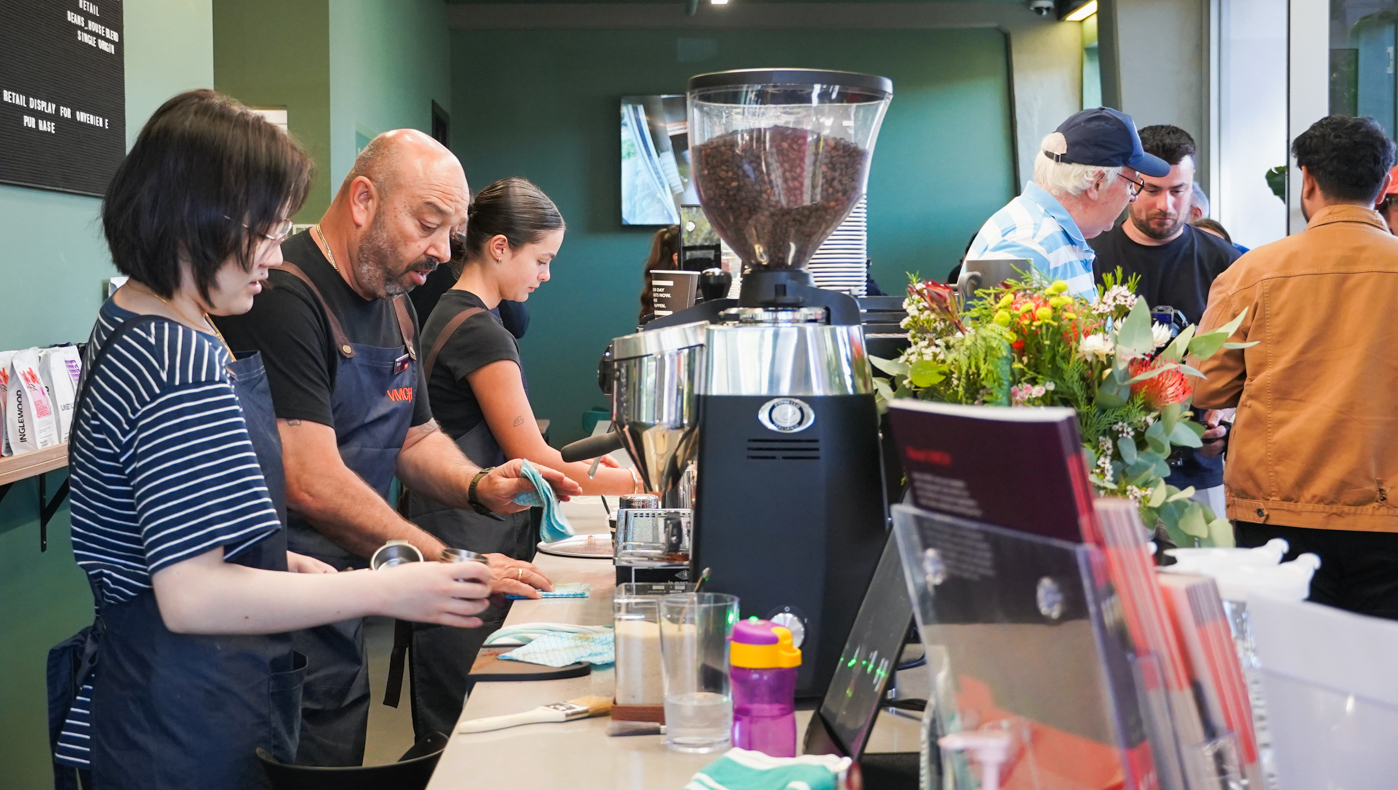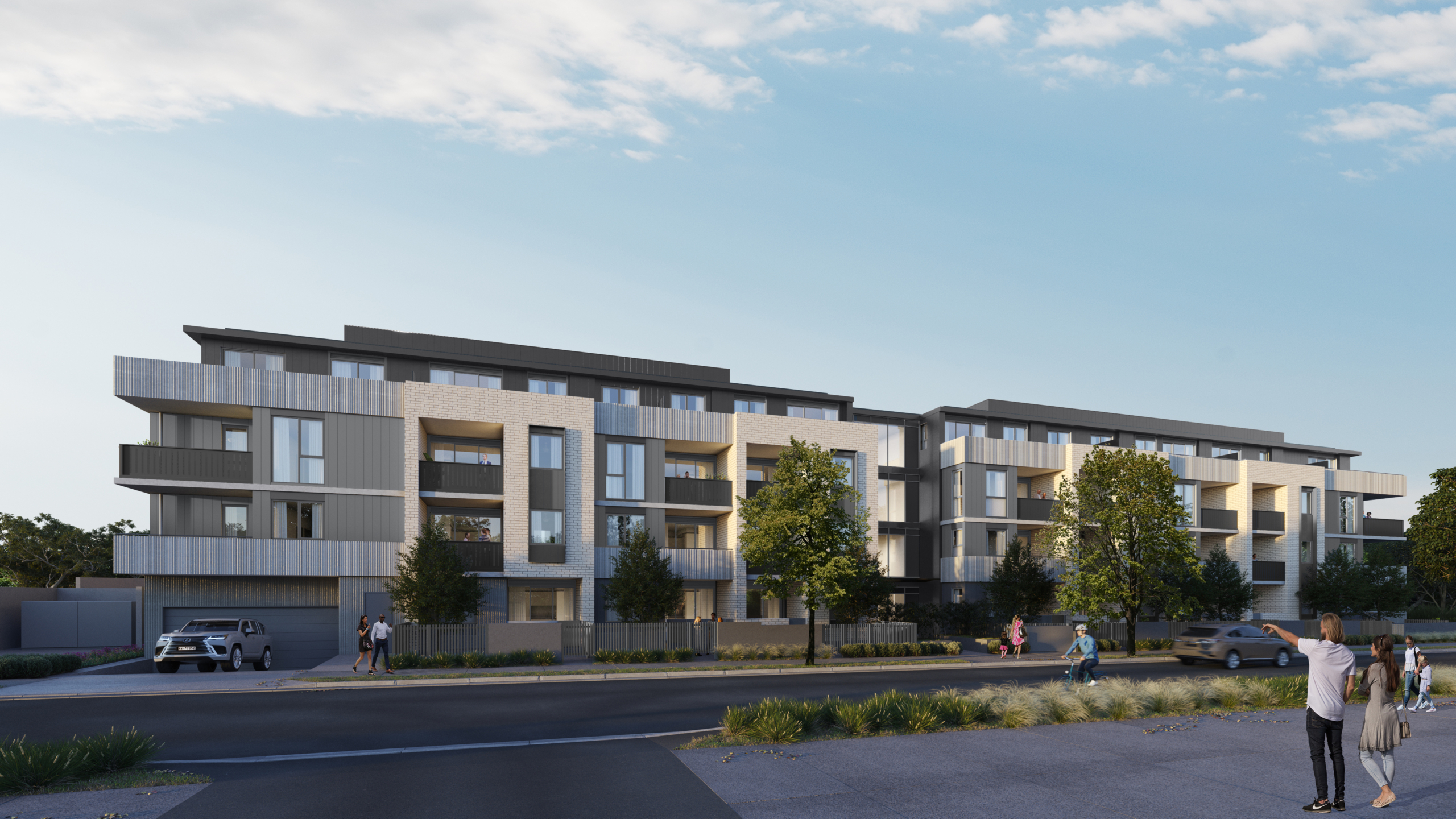Inside Make Room, an Australian First
Last Monday, 9 December, Unison CEO James King was joined by Minister for Housing, Harriet Shing, and Lord Mayor of Melbourne, Nicholas Reece, to officially open Make Room: a transitional housing project that has been four years in the making. The launch was also attended by key stakeholders, including Ngwala Willumbong Aboriginal Corporation (Ngwala) CEO De-Joel Upkett and cohealth CEO Nicole Bartholomeusz. Their organisations will play a vital role in providing support services for Make Room residents.
“Today is a landmark day for everyone in our community – there’s no doubt in my mind that Make Room will change and save lives.” – Nicholas Reece, Lord Mayor of Melbourne
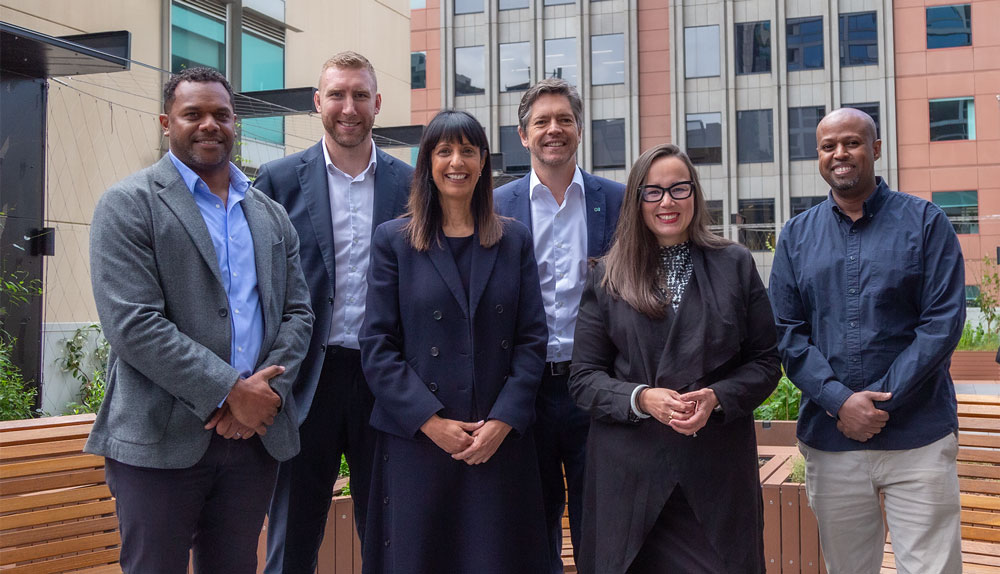
Caption: Ngwala CEO De-Joel Upkett, Unison CEO James King, cohealth CEO Nicole Bartholomeusz, Lord Mayor of Melbourne Nicholas Reece, Minister for Housing Harriet Shing and Liiban James, on the Make Room Rooftop
A Collaborative Effort
The project is a collaboration between the City of Melbourne, Unison Housing, Homes Victoria, and the philanthropic sector to address the critical needs of people experiencing rough sleeping and homelessness in Melbourne.
Make Room provides 50 supportive, self-contained units for Melbourne’s most vulnerable. Each unit is complemented by communal living spaces and a rooftop garden with a veggie patch. Tenanting is set to begin in mid-January 2025, with residents staying for up to 12 months or until they secure alternative housing.
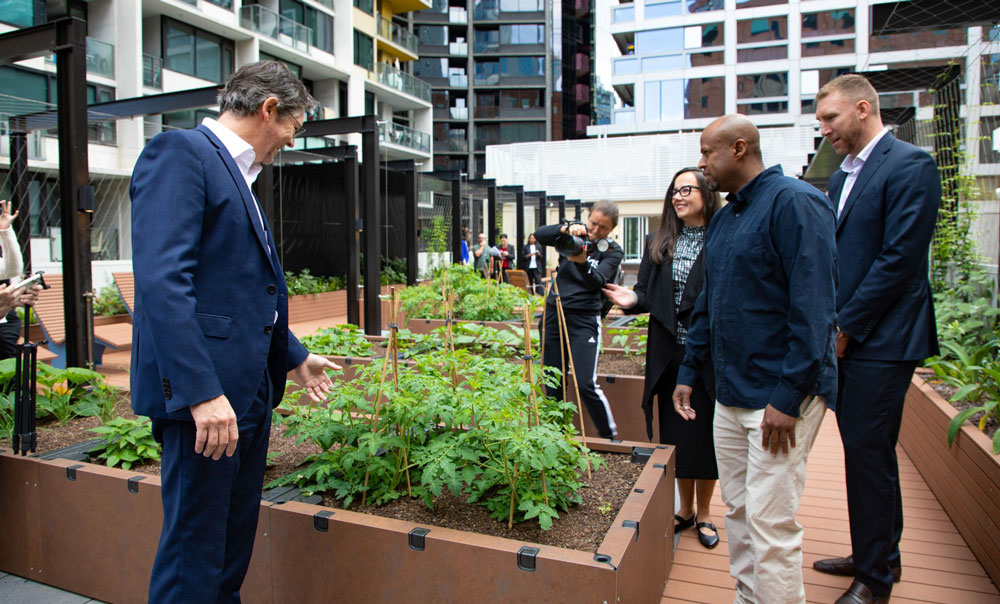
Caption: Lord Mayor of Melbourne Nicholas Reece, Minister for Housing Harriet Shing, Liiban James and Unison CEO James King, touring the Make Room Rooftop Garden
Redefining Transitional Housing
Located at 602 Little Bourke Street, Make Room is an adaptive reuse project that transforms a City of Melbourne-owned building into specialist housing. The project is designed to meet the needs of its residents through the provision of onsite health, wellbeing, and life-skills support, a 24/7 front desk, and culturally safe spaces. Unison will manage tenancies and operations, while cohealth will provide wrap-around health and support services. This marks a first-of-its-kind initiative in Australia.
“We have set a new standard for supportive transitional housing in Victoria – and have led by example to show how adaptive reuse of buildings can be used to deliver good – in cities across Australia and the world.” –Nicholas Reece, Lord Mayor of the City of Melbourne
One standout feature of Make Room is the Phoenix Floor, a dedicated space for women who have experienced family violence or sexual assault. Plans are also underway to include a dedicated space for non-binary individuals and members of the LGBTIQ+ community.
Minister for Housing, Harriet Shing, highlighted the initiatives impact:
“We know that supportive housing projects like Make Room provide life-changing outcomes for people experiencing homelessness. Providing a safe place to sleep, and access to tailored support services is the first step in making that a reality.”
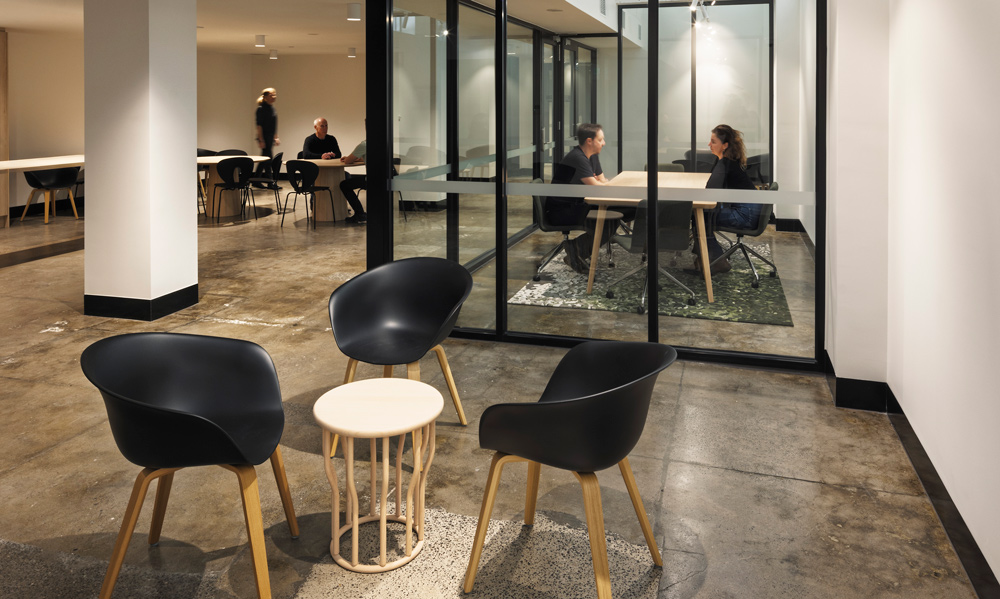
Caption: Make Room Basement Level, equipped with interview rooms and break-out spaces
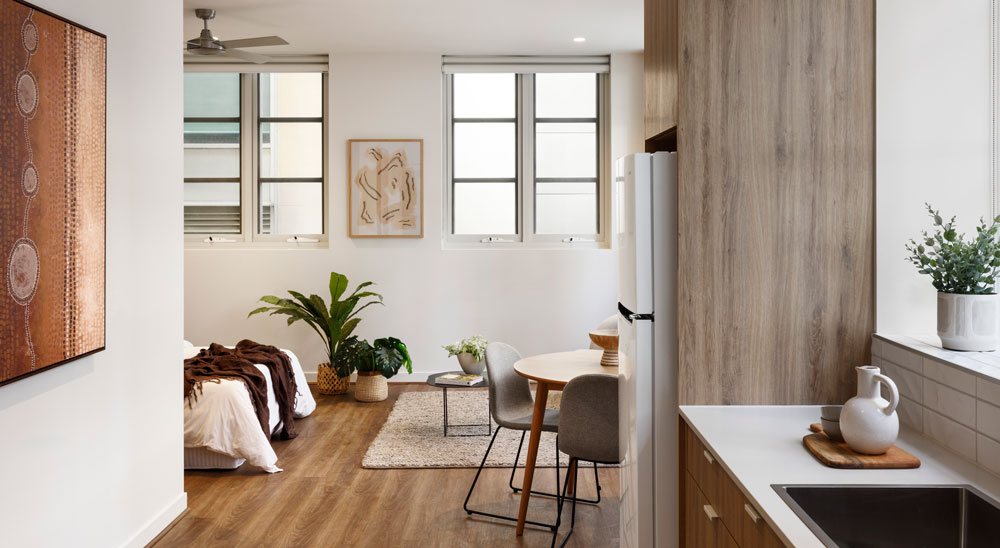
Caption: Inside a Make Room studio unit
A Model for Change
Make Room follows a Housing First model, ensuring housing is provided without preconditions and supported by trauma-informed, consumer-directed care. This approach aims to improve the health, housing, and social outcomes of people experiencing homelessness.
The service model, developed in partnership with cohealth, includes mental health support, housing assistance, legal services, women’s health programs, and culturally specific support for Aboriginal and Torres Strait Islander residents through Ngwala Willumbong Aboriginal Corporation (Ngwala). Nicole Bartholomeusz, CEO of cohealth, summed up the project’s transformative potential:
“We know that a home is more than just four walls—it’s a foundation for health, safety, and opportunity. By combining Unison’s expertise in providing stable, secure housing with cohealth’s holistic health and social support, we’re not just addressing homelessness—we’re creating a pathway to improved health outcomes and lasting stability for some of Melbourne’s most vulnerable residents.”
Grounded in respect for the Aboriginal land on which Make Room is built, the design features artworks by Aboriginal artists Matthew Harris and Mitch Mahoney, inclusive of panels that evoke the movement of wind, a stunning night sky surrounding the entrance, and a 20-meter-high mural that tells the saltwater story of narrm, with the etched tiles with bronze inlay abalone shells.
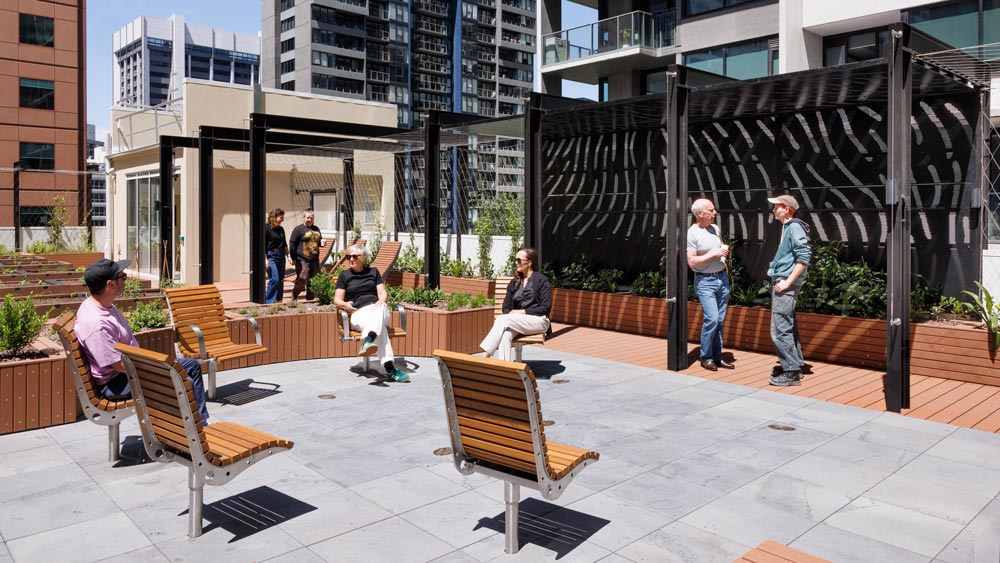
Caption: Make Room Rooftop featuring etched tiles and bronze abalone shells
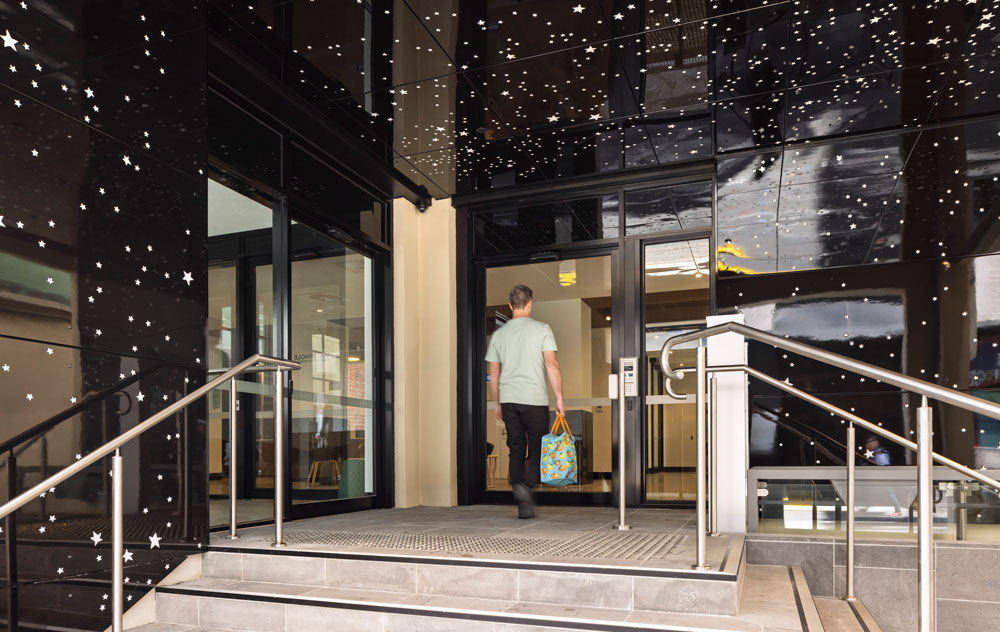
Caption: Make Room Entrance with tiles depicting a night sky
A Joint Vision
The $24.9 million project was made possible through $9 million in Victorian Government funding and $16.1 million raised by the City of Melbourne from philanthropic and corporate partners. Operational funding of $5.2 million over two years has also been secured for ongoing support and tenancy management.
Councillor Gladys Liu, Head of the Community, Health, and City Services Portfolio, emphasised the significance of this investment:
“I want to thank our philanthropic and corporate partners who have stood with us every step of the way. Without their unwavering support, delivering a project of this magnitude simply wouldn’t be possible.”
She added “Everyone deserves to have a safe roof over their head and a place to call home – this is a remarkable achievement in delivering supported housing right in the heart of Melbourne.”
Make Room highlights the power of collaboration in creating meaningful change in our community. Our donors and partners have believed in the vision from the outset, supporting it through every stage. From concept and construction, through to this week’s official opening.
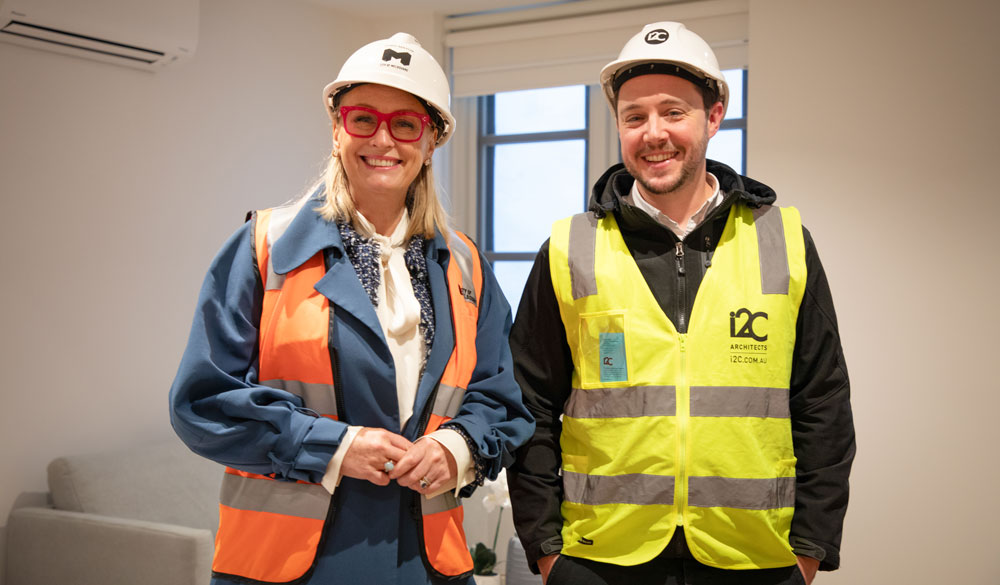
Caption: Former Lord Mayor of Melbourne Sally Capp and i2C Architects Residential Lead Gavin Salt touring a Make Room apartment
Looking Ahead
Make Room not only meets immediate housing needs but also serves as a scalable model for other cities across Australia. It demonstrates what can be achieved when the governments, organisations, and the philanthropic sector work together to tackle homelessness.
Unison CEO James King reflects on the journey ahead:
“The City of Melbourne showed true courage in leading the Make Room project. The real challenge now lies in achieving meaningful outcomes for our city’s most vulnerable.”
This vision will only be realised through the strong partnerships that form the foundation of the Make Room project. Together, we aim to empower individuals experiencing significant adversity by offering a stable base from which they can re-build their lives.
To learn more about Make Room, visit Unison’s website, or contact the Communications Team at communications@unison.org.au.

